The fear is coming from inside the call: What is phone anxiety and what can help?

Content Writer
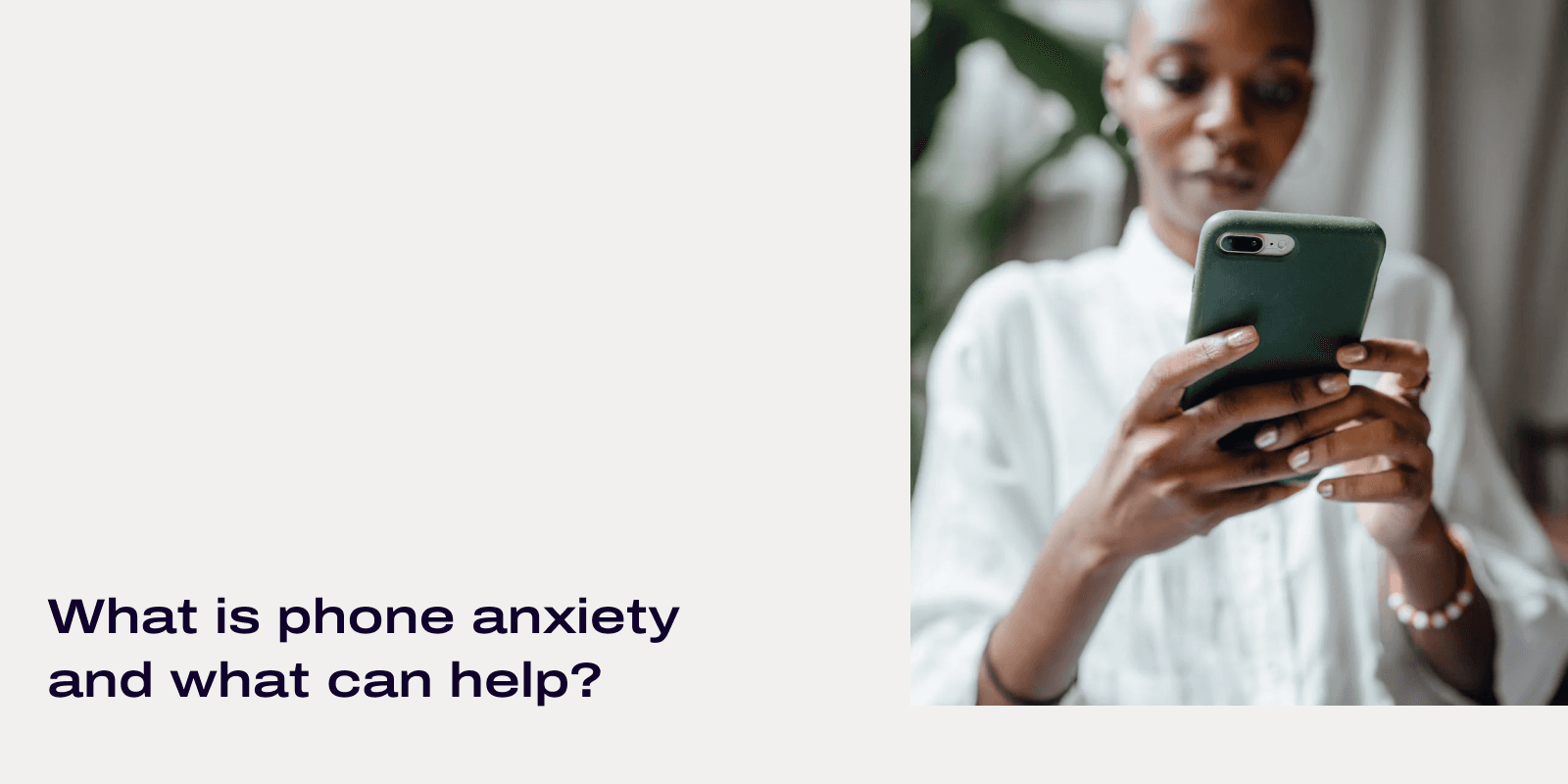
Share
Has this ever happened to you? You’re staring at your phone, the contact list pulled up. You know you need to make a call, but something is stopping you from pressing the button.
Your head is flooded with questions and worries. “Is now a good time?” “What if they’re busy or in a bad mood?” “What am I going to say?” “Do I have to make small talk?” “What if I get sent to voicemail?” “What if I don’t get sent to voicemail!?”
These are all-too common worries, and they have a name: phone anxiety.
But what is phone anxiety really? Is it just a phobia of phone calls, or is there more to it? What causes it? And what can someone do to confront it the next time it rears its ugly head?
What is phone anxiety?
Let’s start with the basic definition: phone anxiety (also known as telephobia) is, as the name suggests, a form of anxiety about having phone conversations. The thought of making a call or having to pick up the phone fills one with dread, and the act of going through a phone conversation can be a painful experience.
But a fear of phone calls doesn’t just mean screaming at the sound of a ringtone. Phone anxiety can manifest in many ways, including:
Reluctance to make a call (including procrastinating on calling or avoiding it altogether)
Being unable to answer a phone when it rings (aka. call avoidance in call centers)
Panic during the call itself
An anxious reaction when a call comes in (especially if it’s from an unknown number)
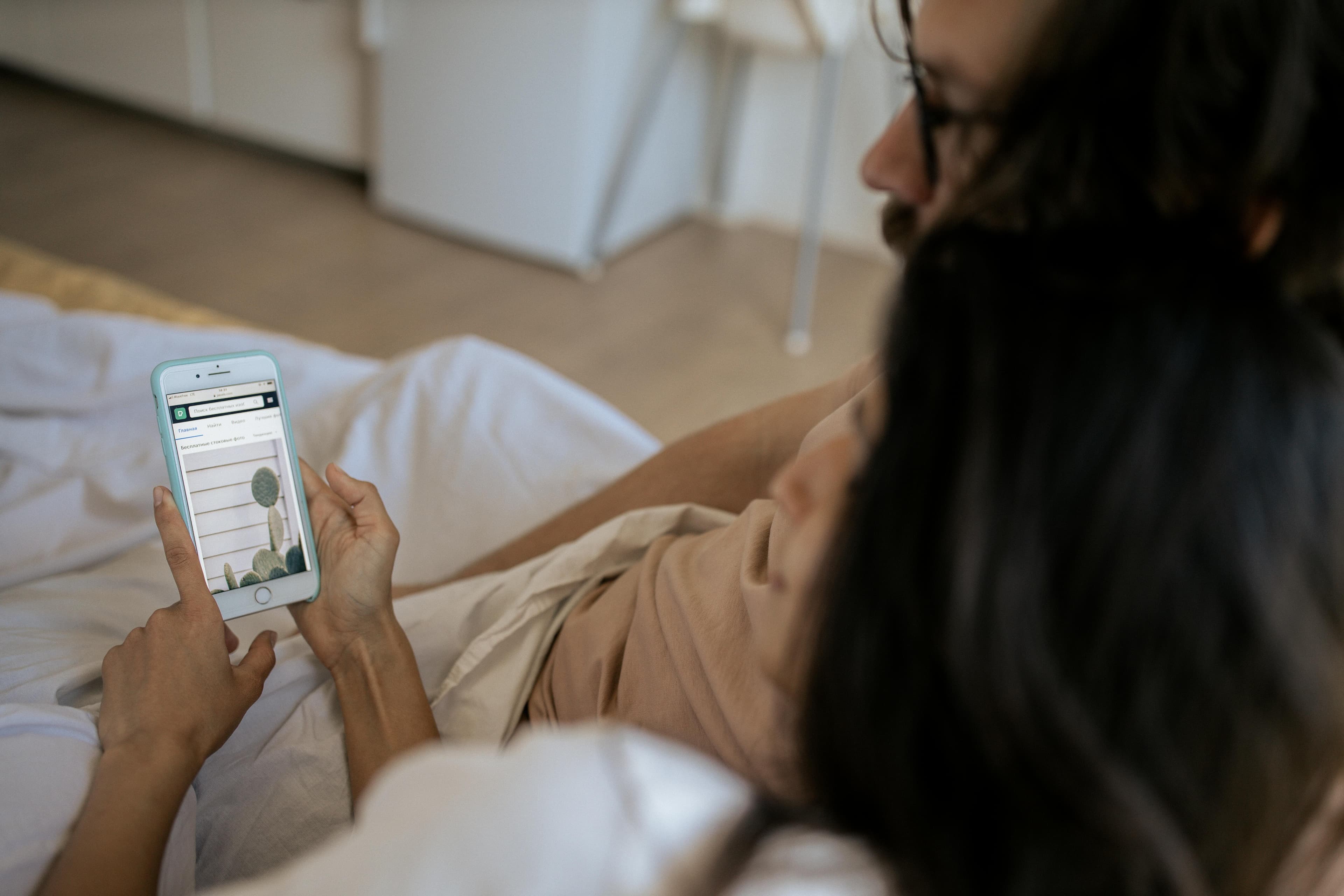
There are several reasons why someone can experience phone anxiety. These are wide-ranging, so large groups of people can all deal with telephobia for completely different reasons. These causes include:
Fear of confrontation
Worries about being overheard or misunderstood
The lack of a paper trail (making email or texting a preferred alternative)
Self-consciousness about one’s own voice
The lack of body language and social cues that face-to-face conversations have
Pressure from being on the spot and in the focus during the call
Social rules of phone calls (small talk, when to hang up, and so on)
In short, there’s no one reason or way to experience phone anxiety. It’s a common occurrence that takes many different forms.
A few statistics on phone anxiety
Just how common is phone anxiety? A 2019 survey of UK office workers found that 76% of millennials suffer from phone anxiety—so pretty common.
But it’s not just a “kids these days” phenomenon—the same survey found that 40% of boomers also experience phone anxiety. And across generations, 61% of employees reported experiencing physical anxious effects when the phone rings and they’re the only one in the office.
In fact, phone anxiety isn’t always business-related, nor did it begin with the rise of cell phones. One Redditor recounts: “80s kid here. I remember long hours staring at the phone as I rehearsed in my head what to say when a girl gave me her phone number. Must be so much easier to just text ‘hey.’”
While the reasons for phone anxiety vary, some causes are more prevalent than others. In the survey, the most common cause for phone anxiety is “fear of not knowing how to deal with a query” at 33% (this can be especially common in contact centers, where callers have been known to be frustrated and impatient). Another common fear, coming in at 15%, is the fear of freezing up while on the phone.
There’s no one reason or reaction—phone anxiety will absolutely vary from person to person.
How to tell if you have phone anxiety
If this is starting to hit close to home, you’re not alone. Because there are so many causes and effects of phone anxiety, there’s no one key indicator that someone may have it, but it can still be easy to recognize from any of several symptoms, like:
Avoiding making calls (consciously or otherwise)
Delaying answering calls when the phone rings
Obsessing over what you’ll say before the call (and going back and criticizing yourself over what you said afterwards)
Nervousness during a call—including physical reactions like an increased heart rate, shortness of breath, or shaking
These can range in severity, but they’re all valid indicators of a fear of phone calls.
Research has also shown that phone anxiety is common among people with social anxiety disorder (SAD) or autism. After all, being anxious about or struggling with social situations doesn’t necessarily require being in person. Audio processing disorders can also contribute to phone anxiety, as phone calls become a struggle to hear what anyone is saying.
Of course, it’s important to remember that just because you have phone anxiety doesn’t mean you have any of those—rather, if you do have one (or more) of them, then you’re more likely to also deal with phone anxiety.
Is texting the cure?
Okay, so phone anxiety means that talking on the phone is difficult. So what about text messaging?
Well, the rise of texting has indeed made voice calls less frequent (how many of us use our phones to send text messages more than we make calls?), and can help address many of the causes of phone anxiety.
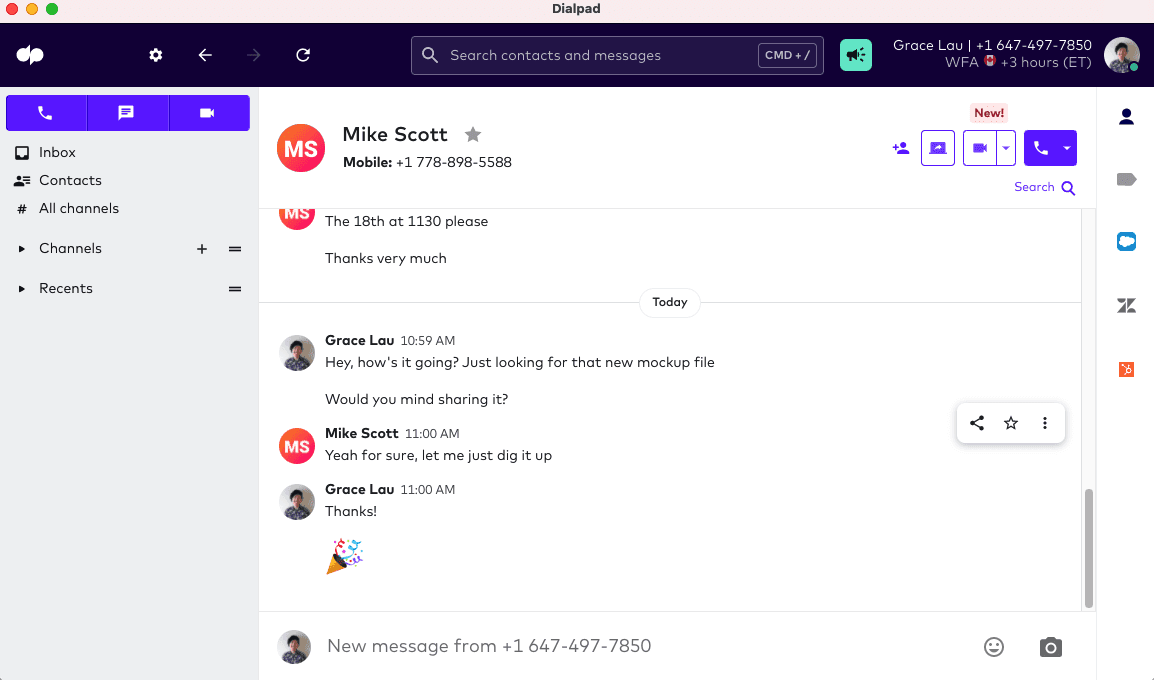
For instance, texting reduces the sense of urgency. There’s no ringing, no voicemail to check—the message gets sent and can be viewed and replied to at the recipient’s leisure. It also gives people more time to compose their thoughts and write out exactly what they want to say, rather than be put on the spot.
However, phone calls are still often necessary. For instance, you can’t conduct a job interview via text message (and the last thing you want is for your phone’s autocorrect to change “I have five years of experience” to “I have five yards of experiments” when talking to a recruiter). Similarly, there are times when you need to talk with someone to guide them through steps or a process, like with tech support.
Still, messaging can be a great substitute for phone calls when appropriate. That’s one of the reasons why Dialpad offers live chat, chatbot support, and SMS messaging, so customers can not only create group chats to communicate and collaborate with their coworkers within Dialpad, but also provide multiple communication channels for customer support.
What about video calls?
If one of the drivers of phone anxiety is the lack of visual cues, perhaps video calling is a solution? After all, when you’re on a video call, you can read the other person’s body language and get those indicators.
Of course, Dialpad also offers video calls, so customers can meet face-to-face even when they’re far away from each other. And given the rise of virtual meetings during the COVID-19 pandemic, it’s clear that being able to talk with friends, family, and colleagues over video creates more of a connection and social experience than voice calls do.

Video calling does indeed address many of those issues, but it’s also not a perfect solution for phone anxiety. It still requires availability during the call (and even has more stringent requirements than phone calls, because the callers both need to be in a place where they can be on video). Plus, a video call is still a call, so it doesn’t address the issues from anxiety around the conversation.
There’s no one perfect substitute for phone calls, so phone anxiety can’t be defeated just by never making a call again. Instead, people need ways to address and overcome it.
How to overcome phone anxiety
What can we do to reduce phone anxiety? Just like there’s no one cause or symptom of phone anxiety, there’s also no one way to tackle it. It’s also worth remembering that anxiety (phone or otherwise) is not necessarily something that can be “cured,” but rather, addressed and managed.
Some advice for managing phone anxiety includes:
Exposure therapy—basically, using the phone frequently enough so that you grow used to it
Adjusting your own body language to put yourself in a more comfortable and confident place (even just smiling can influence your mood, even if you don’t feel it at first)
Rewarding yourself after the call, so that you have something to look forward to after facing your fear
And of course: just letting the call go to voicemail. Like with texting, that will allow you to call back at your leisure. (This doesn’t help when you have to make a call or it’s a call you know you need to take, but that unknown number and a call from your father’s brother’s nephew’s cousin’s former roommate can absolutely go to voicemail.)
And look, it’s one thing to just say “don’t overthink it,” but as anyone with anxiety can tell you, that’s easier said than done. Anxious minds will worry and overthink whether we like it or not, and telling someone “just don’t do this thing you have no control over” is less than helpful.
But you know what is helpful? Advice from people who’ve experienced it firsthand. For that, we can turn to the world wide web…
Top tips from the internet (okay, from Reddit)
How are people dealing with phone anxiety? We did a deep dive into Reddit and found some threads with great advice on how Redditors have handled it.
Exposure therapy is a common solution, as it helps make the calls feel more natural, and lets you get used to it.
“Make and take as many calls as you can, make it second nature,” suggests u/slothpug1. “You still sometimes get some nervous butterflies when it rings, but just answer sooner, rather than dragging it out, and it won’t be too bad.”
Another user agrees, saying “Avoidance maintains anxiety. You just need to feel the fear and do it anyway. Regularly.”
Scripting out calls is a common solution as well. This provides guidance for callers, so they know what they need to say and don’t have to worry about being put on the spot.
“I’m absurdly anxious when making phone calls,” says u/suprememeep. “I tend to make myself a rough script before I make a particularly stressful call, and it helps a lot.”
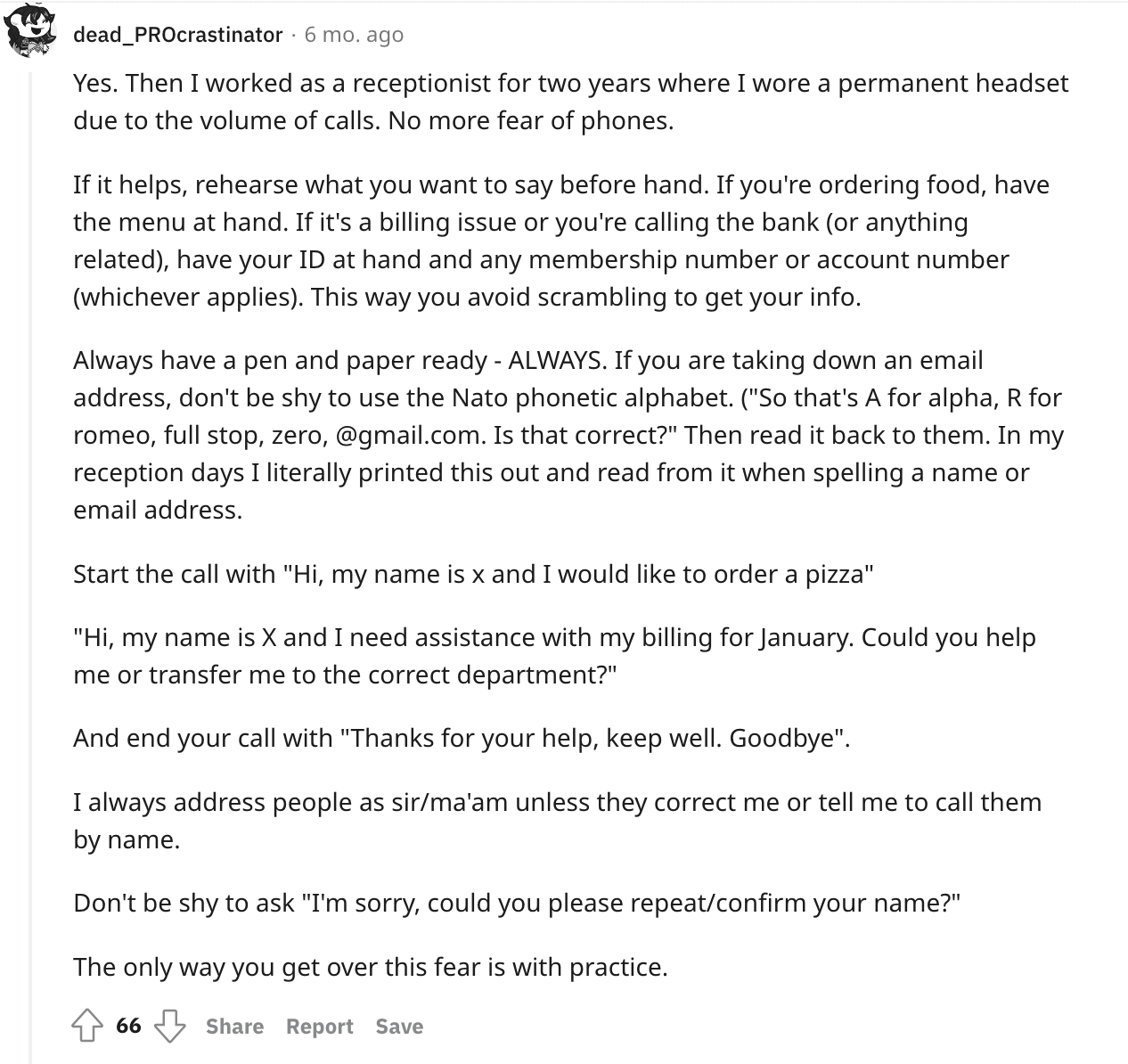
Making calls less frightening
The first step to facing phone anxiety is to understand it. There’s no one simple cure, but there are many ways that you can work on addressing a fear of phone calls.
If you struggle with phone anxiety, don’t feel bad—many people do. You can try some of the tips from the Reddit posts, or find other methods that work for you.
And if you work in a customer-facing job where you have to take phone calls regularly, there are contact center tools that can help with that too. For example, Dialpad Support is packed full of features to make calls easier. If you work in a contact center and you’re worried you won’t know how to help a customer with their query, Dialpad's Real-Time Assist cards can provide you with the information as soon as the customer asks a question:
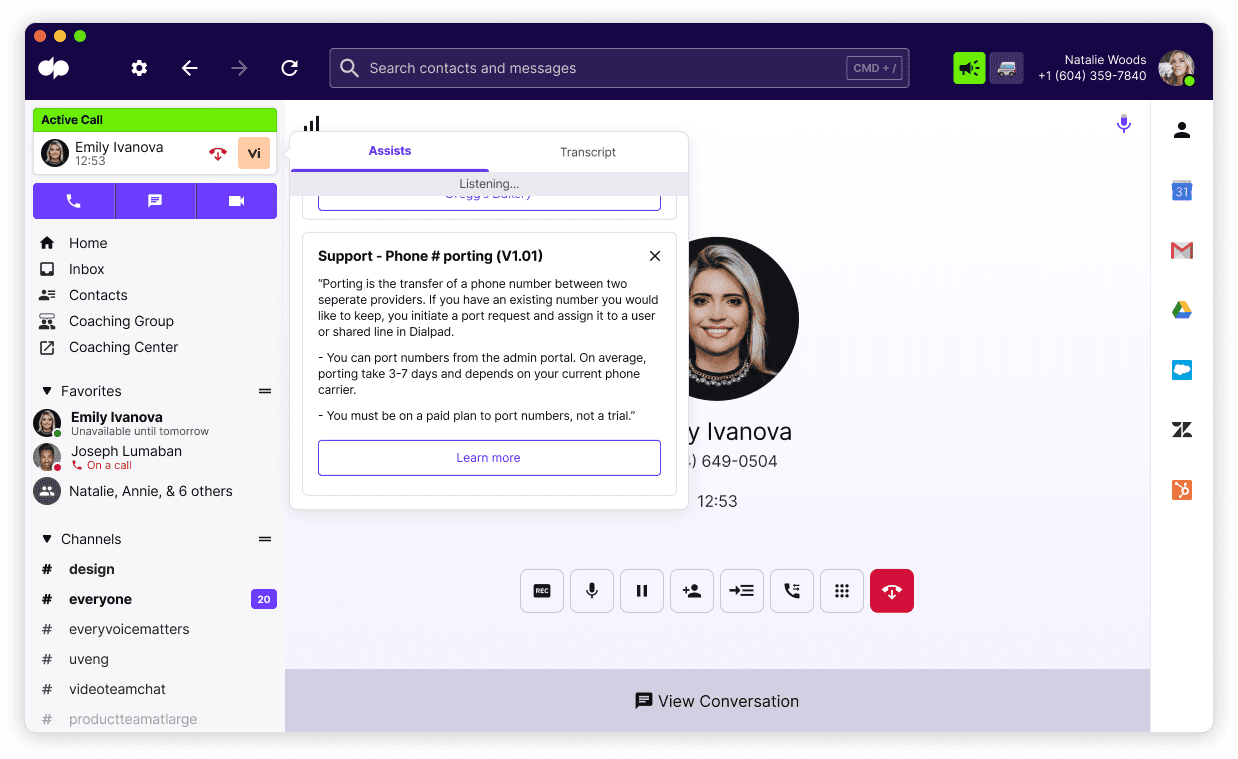
Worried about not having a paper trail and records of the call conversation? Dialpad Ai automatically transcribes calls and meetings in real-time, so you have notes and timestamps for everything.
In the end, phone anxiety is something so many people struggle with, but it can be addressed and overcome. And you won’t have to worry about calls when Dialpad is on your side.
Want to see how Dialpad's cloud communications platform works?
Sign up for a 14-day free trial to make phone calls, have video meetings, and send SMS/MMS + instant messages—all from Dialpad's intuitively designed app!
